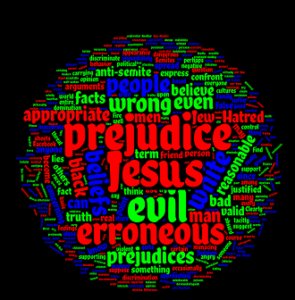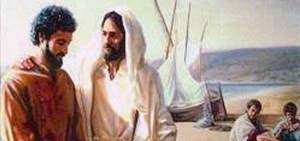
Arquivo para a ‘Linguagens’ Categoria
Ethics, humanism and philosophy
Peter Sloterdijk told El País newspaper: “current life does not invite thinking” (on 05/03/2019) and the “era of humanism is ending” said Achille Mbembe Cameroonian postcolonial historian and thinker and humanism today is an issue of state and therefore of power, since its base is economism, a materialistic humanism prevails, not always considering human values.
life does not invite thinking” (on 05/03/2019) and the “era of humanism is ending” said Achille Mbembe Cameroonian postcolonial historian and thinker and humanism today is an issue of state and therefore of power, since its base is economism, a materialistic humanism prevails, not always considering human values.
Philosophy became the ideological justification of power, polarization led to extremes even the denial of authors whose authors swore to defend, Eurocentric epistemicide forgets its most basic foundations and surrenders to political polarization.
What did spinozian ethics mean? What is the critique of current reason? Sloterdijk points out the cynicism.
War was inevitable in a growing polarization and new economic order.
Current philosophy already thinks about humanism alternatives, Edith Stein, a phenomenologist and student of Husserl, explored the issue of Empathy, Heidegger, another student of Husserl, the issue of Being, Emmanuel Lévinas on Husserlian hermeneutic influence, and Heidegger defines humanism as beyond essence, that is , the humanism of the other man, which can be a starting point for the new humanism, and also Habermas (The inclusion of the Other) and Byung Chul Han (The exclusion of the Other) touch on the theme.
Religion is confused between ritualism, fundamentalism and the absence of basic humanistic values: love, solidarity and fraternity, so the biblical reading is manipulated and partial, secularism advances in a minefield due to the absence of humanitarian values of faith.
It is hoped that in this crisis and fragmentation of civilizing development, leaders and influential men can find serenity, dialogue and balance for possible solutions.
Philosophy cannot be anything else that does not cooperate with peace, with civilizing progress.
Religion, anthropology and philosophy
Enlightenment and modern philosophy, on the assumption of abolishing all “superstition” and establishing an age of knowledge and reason, divided the system of knowledge into subject and objects, medieval philosophy was not very far from this, there were realists and nominalists and none won, all changed, and everything that was considered “metaphysical” including the Being was left aside.
assumption of abolishing all “superstition” and establishing an age of knowledge and reason, divided the system of knowledge into subject and objects, medieval philosophy was not very far from this, there were realists and nominalists and none won, all changed, and everything that was considered “metaphysical” including the Being was left aside.
However, the ideas of concepts, structures that should develop knowledge were already present in an author little read, but important: Boethius (400 – 524 AD), a philosopher, poet, statesman and Roman theologian, whose works had a profound influence on Christian philosophy. from the Medieval.
His main work is the “Consolation of Philosophy”, but his is the “wheel of fortune” and a fragment finds what became known as “the quarrel of the universals”, if the universals (concepts would be today) would be today “if the universals are things or mere words”, hence the division between realists who see things and nominalists who defended “names”, words.
But both Boethius and later Thomas Aquinas who studied and translated Greek works, with their own interpretations, the question of Being was present and the question of history and truth as well.
His humanistic contribution lies in the conception of what we now call “human dignity”, for his Philosophical Anthropology the human person on the horizon of rationality considering his singularity data, a new humanism cannot do without its new and still little understood prism, for Boethius was a staunch defender of the faith for Christians and for humanists his De Consolationes Philosophiae brings essential collaborations.
Even today, his ideas may seem controversial, when he defends that man is also nature, but that he must subsist and achieve it as an extension of “nature”, he says in another work:
“Or, if ‘person’ does not equate to ‘nature’, but if ‘person’ subsists under the reach and extension of ‘nature’, it is difficult to say to what natures it always occurs, that is, to what natures it is fitting to contain ‘person’ and which of them should not be separated from the word ‘person’. Indeed, this is clear: ‘nature’ underlies ‘person’ and ‘person’ cannot be predicated beyond ‘nature'” (Boethius, Against Eutyches and Nestorius, 2005, p. 163).
At a time when anthropocentrism is questioned and the relationship with nature is reviewed, it is important to read this medieval philosopher, theologian and humanist.
Boécio. (2005) Escritos (OPUSCULA SACRA). Tradução, introdução, estudos introdutórios e notas Juvenal Savian Filho. Prefácio de Marilena Chauí. São Paulo, Brazil: Martins Fontes.
Myths, primary orality and religions
Myth is a way of explaining phenomena, not only natural, but also cultural and historical, in order to maintain a certain fact that occurred beyond the factual state, orality is a form of communication and religions have a structure of cosmogonies that give the facts a deeper meaning.
not only natural, but also cultural and historical, in order to maintain a certain fact that occurred beyond the factual state, orality is a form of communication and religions have a structure of cosmogonies that give the facts a deeper meaning.
It is necessary to highlight in religions and ancient primary oralities the role of oracles and prophets, who had some “authority” to narrate historical facts so that understanding was maintained and narrative deviations were avoided, and between oracles and sophists there is a distance.
Sophists existed and still exist to elaborate narratives that justify power, even the atrocities and excesses that occur and are often confused with false prophets and oracles of power.
However, myths were necessary countless times in history, the battle narrated in the Iliad and Odyssey in the form of poems, can only imply a narrative of power, however there some myths are used as a way of maintaining a narrative and there was the battle.
As for the religious myth about Adam, it is even possible that it existed, but the human origin is now known from research that there was a variation between Neanderthals and Homo Sapiens, the first ones that disappeared had a more elongated skull and stronger teeth and that were born earlier, which better adapted them to less treated and harder foods.
All we know of the origin of life is the emergence of microbiotics in the early oceans and then small multicellular animals and shells (pictured) in the Precambrian period.
However, very recent discoveries show that not only did they coexist and interbreed, as there are DNAs from Neanderthals that are still present in current humans, but Neanderthals disappeared about 40,000 years ago.
Thus, the Adamic biblical myth must be understood in two ways, the first is that man came from nature (in the biblical narrative of clay) and that somehow, which even science has difficulty explaining, among the lives that emerged in the formation of the biosphere, man was formed, the second explanation is that the children Abel was a shepherd and Cain a farmer, so it is the sociological period that man already cultivates and initiates the “control” of nature.
Primary orality will play a fundamental role in transmitting the “knowledge” that facilitates this control, and myths must signify this primary “control” of nature, as well as oral transmission without deviations.
So what is it to believe?
We already believed many things that were not true, the sun is not the center of our galaxy, at the center is a Black Hole, and both matter and dark energy seem to defy current laws called Standard Physics, a scientist said that God did the division by 0 and everything could have miraculously come out of Nothing.
the sun is not the center of our galaxy, at the center is a Black Hole, and both matter and dark energy seem to defy current laws called Standard Physics, a scientist said that God did the division by 0 and everything could have miraculously come out of Nothing.
If we closely examine the beliefs, in all of them there is the golden rule: do not do to others what you would not want done to you, especially Jesus said about the greatest commandment (Mt 22, 37-40): “You shall love the Lord your God with all your heart, with all your soul, and with all your mind!” This is the greatest and first commandment. The second is similar to this: ‘Thou shalt love thy neighbor as thyself’. All the Law and the prophets depend on these two commandments.”
Without this, we fall into an eye for an eye, a tooth for a tooth, said the philosopher Byung Chul Han about one of the inaugural books of our era, the poem Iliad (8th century BC) (in picture image of the Pablo Delgado), its first word is “menin, namely cholera [Zorn] : “sing, goddesses, the wrath of Achilles son of Peleus” (p. 22), thus human culture, especially Western culture, is founded on violence and the philosopher points out that ‘the disintegration of today’s society does not cease to exist the epic energy of rage.” (pg. 23).
The divine opposition of pacifism is not just a historical inversion, it is in this moment of civilizing crisis the real possibility that the process advances and that humanity does not massacre itself.
It is true that there is not even a correct view of Deus Homo Jesus, he was not a warrior, a miracle worker and if he did so he always asked for discretion, he never did so by an exhibitionist or triumphalist act, he did not stimulate any type of anger, even that the falsehood of many religionists irritated him, and he always asks the disciples: “who do they say that I am”.
In Matthew 16, 14 after asking this: they replied: “Some say that he is John the Baptist; others, that it is Elijah; still others, that it is Jeremiah or one of the prophets”.
And then they are asked why only true disciples recognize Homo Deus love and mercy (Mt 16:16) and Peter replies: “You are the Messiah, the Son of the living God”.
As in the time of Jesus and throughout history there have always been false prophets and disciples, but Jesus warns that it is only from the good tree that good fruits sprout, so the distinction is simple.
Han Byung-Chul (2018) No Enxame: Perspectivas do digital (“In the swarm: Perspectives of the digital”), trans. Lucas Machado, Br, Petrópolis: Vozes.
The eclipse of god
Martin Buber’s book with this name deals with how we can find in the philosophy and history of religion, from pre-Socratic philosophers to 20th century thinkers, an interpretation of Western beliefs, with emphasis on the relationship between religion and philosophy, with ethics and Jungian psychology, which was worth a reply from Jung and a rejoinder from Buber.
how we can find in the philosophy and history of religion, from pre-Socratic philosophers to 20th century thinkers, an interpretation of Western beliefs, with emphasis on the relationship between religion and philosophy, with ethics and Jungian psychology, which was worth a reply from Jung and a rejoinder from Buber.
We live, as Buber says, in a time of God’s eclipse, when seeing the Moon pass in front of the Sun, it seems that it no longer exists, when in fact it is covered up, this is curious, because the controversy with Jung is caused by a question in In an interview about the existence of God, Jung replied: “I don’t need to believe, I know” (Jung, 1977, p. 428).
This caused a furor at the time and even today books like God: a Delusion (the title in English is The God delusion) we find a quote on page 51, in a book that shows Dawkins’ delusions more than the delusions of those who believe, mainly what in philosophy it refers to the Absolute, whose culmination of Western elaboration is Hegel’s abstract concept of the Absolute.
Hegel’s absolute, which is an articulation between the dualistic objective and subjective of idealism, is a singularity of a substantial power, proper to subjectivity and the concept as having a universal substance, which through abstraction becomes effective in self-consciousness and becomes if equal to essence, an essential I-myself species.
Jung’s later comment, expressed chiefly in a letter to a friend which has been published, he explains: “Whatever I perceive from without or from within is a representation or image…caused, as I rightly or wrongly suppose, by a corresponding “real” object. But I have to admit that my subjective image is only roughly identical to the object… our images are, as a rule, of something… the God-image is the expression of an underlying experience of something I cannot reach by intellectual means…” (Jung, 1959).
Jung’s response, without articulating it in an implicitly philosophical way, is a response to idealist subjectivism, it cannot be reached through reason, it is an object of faith, of belief and whoever has it has it inside and out while being at the same time subjective and objective.
The biblical passage that best illustrates this feeling is the one (Jn 15, 45-46): “The Kingdom of Heaven is also like a buyer looking for precious pearls. When he finds a pearl of great price, he goes and sells all his possessions and buys that pearl.”
Jung, C.G. (1977) The Face do Face entrevista in C.G. Jung Speaking: Interviews and Encounters, Princeton, Belligen paperbacks, p. 424-439.
Jung, C.G. (1959), Letter to Valentine Brooke in C.G. Jung Letters, Volume 2, 1951-1961, edited by Gerhard Adler, (London: Routledge and Kegan Paul), pp. 525-526, 1959
About the modern and God
If it is true that the religious discourse of our days borders on insanity, it is also true that what modernity thought and still thinks about God is practically unknown.
Born to a family of Lutheran pastors, Nietzsche did not speak of the Death of God as his shallow reading thinks, they did not read the Gay Science where the philosopher proclaims “The mad man – You have not heard of that mad man who in the middle of the morning lit a lantern and ran to the market , and began to cry out incessantly: ‘I’m looking for God! I’m looking for God!’?” drink the sea entirely? Who gave us the sponge to erase the horizon? What have we done, in untying the earth from its sun? Whither is it moving now? Whither are we moving?'” is in §125.
He sought in the philosophy of the East: Thus spoke Zarathustra the lost mystique, but his work The Birth of Tragedy has striking passages where he shows the need to understand this way of understanding life, where he makes studies on the Apollonian and the Dionysian, where chapter 5 it is believed that this is where Heidegger starts to write the Origin of the Work of Art.
From Husserl’s Influence were born the philosophies of Heidegger and Edith Stein, who later became mystic, being Jewish became Christian and was a martyr in Nazi Germany, still under the influence of Heidegger is Hannah Arendt, whose doctoral thesis is “Love in Santo Agostinho”, although there are gaps that his contemporaries attest, it is a good read.
From Hannah Arendt came the meditations on Vitta Activa and Vitta Contemplativa, which the contemporary philosopher Byung Chul Han will take up again in his Society of Tiredness, not forgetting to touch on the Christian philosophy of Saint Gregory of Nazianzus (or Nazianzen).
He was strongly influenced by Peter Sloterdijk, who despite his atheism, in all his works the deep marks of the knowledge of Christian thought, claims the prophet Jonah to say that we all have a whale (Jonas when refusing his mission was devoured by a whale and returned to the beach) and a little Jonas, refuses our mission on this planet.
Byung Chul Han makes a very current diagnosis, he adds that the “modern loss of faith, which concerns not only God and the beyond, but reality itself, becomes radically transitory human life” (Han, p. 42) .
This is not a separate problem, it is an essential part of modern thought, refusal of the essential, adoption of the transitory, fleeting and frivolous life and of fleeting and ecstatic pleasures.
Han, Byung Chul. (2015) Burnout Society. Ed. Stanford Briefs; 1ª ed., Stanford, USA.
Between testimony and forgiveness: the cure
Paul Ricoeur’s analysis of whether forgiveness can heal ranges from memory to oblivion, but the author clarifies that “in the framework of the broader dialectic of the space of experience and the horizon of experience”, and recalls that Freud calls this “translaboration”, which means overcoming the belief that the past is closed and determined and the future is indeterminate and open.
ranges from memory to oblivion, but the author clarifies that “in the framework of the broader dialectic of the space of experience and the horizon of experience”, and recalls that Freud calls this “translaboration”, which means overcoming the belief that the past is closed and determined and the future is indeterminate and open.
Past facts are inerasable: we cannot undo what was done, nor make what happened not happen, but we must remember that the testimony of those who suffered the facts or who practiced them can and must be modified, depending on “our memories”.
It is not about forgiveness, or about building a new narrative, but Paul Ricoeur recalls Raymond Aron in his Introduction to the Philosophy of History, as what he calls the “retrospective illusion of fatality” and which he opposes to the historian’s obligation to transport himself to the moment of action and become contemporary with the authors.
The author sentences: “all memory is selective”, and reminds the author “if one could implement the oblivion of escape, the strategy of excuse, the task of bad faith, which makes passive-active oblivion a perverse undertaking”, then not just forget, but re-see.
The point in Ricoeur’s text where the testimony can be inserted is precisely this where he states, trying to combine forgiveness with work and mourning: “He marries one and the other. And, joining both, it brings what in itself is not work, but precisely a don”. Isn´t gift because in French (don, term used in the work of Marcel Mauss) or in Italian donno, whose translation is difficult but would be gratuity, I don’t like a gift because although it may have something divine, it is a detachment from the one who gives (forgiveness) the testimony.
Recalling the biblical Adamic myth, death, revenge and war seem natural, but it is the gift (don) and forgiveness that can turn civilization around and build peace and prosperity.
Ricoeur, P. (1967) Symbolism of Evil, Harper & Row Pub, New York: USA. (pdf)
Error and forgiveness
From a scientific point of view, finding errors in methods and analyzes means changing the route and not the research hypothesis, if a hypothesis is not confirmed this is a result and not an error, in fact for Popper this is how science walks, but another thinker Thomas Kuhn argues that there are ruptures or new research hypotheses, quantum physics is an example of this.
methods and analyzes means changing the route and not the research hypothesis, if a hypothesis is not confirmed this is a result and not an error, in fact for Popper this is how science walks, but another thinker Thomas Kuhn argues that there are ruptures or new research hypotheses, quantum physics is an example of this.
Already in philosophy, most philosophers defend that forgiveness is a moral virtue, thus it expresses the human capacity to overcome resentment and revenge, and with this restore interpersonal and social relationships, but there are philosophers who see forgiveness as weakness or illusion, since it denies the seriousness of the evil and the responsibility of the offender.
The contemporary philosopher who dealt with forgiveness was Paul Ricoeur, who developed it without departing from the religious sense (mainly Christian) and sees it as a paradox, as it goes against the unforgivable, that is, that which cannot be repaired or compensated by justice.
The theme is relevant because Ricoeur recalls that the theme became relevant “particularly characteristic of the post-Cold War period, in which so many peoples were submitted to the difficult test of integration of traumatic memories” in a text published in Esprit, no 210 (1995) , pp. 77-82 and which can be found on the Internet or part of the Ricoeur book (1967).
The author places “forgiveness in the energetic action of a work that begins in the region of memory and continues in the region of oblivion” (Ricoeur, 1995), and that a phenomenon “that can be observed on the scale of common consciousness, of memory shared” and clarifies that he wants to avoid the debatable notation of “collective memory”.
Although written well before our time, as much the totalitarian question is at stake as the question of colonialism, and this means a “shared” memory that can lead to fury.
The philosopher uses the vocabulary of the German philosopher R. Roselleck, who opposes “our global historical consciousness”, which he calls the “space of experience” and, on the other hand, the “horizon of waiting”, if we look at our experience almost we can overcome hatred and resentment between peoples and cultures, so I consider it correct not to use “collective memory”.
It is necessary to overcome historical errors, misconceptions and paths already trodden, which led us to chaos.
Ricoeur, P. (1967) Symbolism of Evil, Harper & Row Pub, New York: USA. (pdf).
Minimum ethics: when we make a mistake
The discourse is very common, even I sometimes say, that the biggest mistake is not saying no, but educating means explaining the no and helping people to correct their mistakes and listen to the counter-argument.
that the biggest mistake is not saying no, but educating means explaining the no and helping people to correct their mistakes and listen to the counter-argument.
This implies maintaining ethics, even in the face of error, when it is common to appeal and leave for error, but what does it mean to make a mistake?
Aristotle says in his “Nicomachean Ethics” that it is possible, from a moral point of view, to make mistakes in many ways, but there is only one way to get it right: “We make mistakes when we are afraid of everything and face nothing; we err when we surrender ourselves without measure to every type of pleasure; we make mistakes when we do not return what is rightfully the other’s. On the other hand, we succeed when we avoid excesses”.
Excess can even concern what we consider virtuous, which is what concerns our dispositions: study, leisure, work in short, everything that is important, but requires balance and temperance.
Habits and addictions depend on habits, and habits depend on continuous actions, but how to correct addictions and mistakes? the practice of going straight to the point can be a mistake, every mistake must be contextualized to avoid hasty and sometimes mistaken judgment
To correct is above all to give space for the error to be understood and the reprimand already requires a social action, in many cases legal, thus it requires the proven facts, witness and the correct way of correcting, the fair measure is always the one that allows the error to be corrected. adjusted.
Fraternal correction is indicated in (MT 18, 15) it says to take your brother in private, if he listens to you he will have a brother, if he does not listen to you he takes a witness if he still does not listen to you he is a public sinner.
What has changed, there is no more correction, but only punishment and it is not always right.
Taxes, profit and tithing
Whenever a crisis appears on the horizon, the most common temptation is to overload society and the issue of taxation is on the agenda not only in Brazil, but worldwide.
most common temptation is to overload society and the issue of taxation is on the agenda not only in Brazil, but worldwide.
For benefits to be incorporated into civil life, the state needs taxes, but they should not serve as perks of the state since it is a service provided to society, and taxes incorporated into costs and prices distort and can strangle investments, savings public and private and inhibit export.
The problems in the country are enormous, the most common is double taxation (taxes on services that are already taxed, road fees for example), but governments are insatiable, they need to feed the plentiful tables of those who sustain them in power.
Profit must be thought of as having three purposes, the maintenance of social services that also serve companies, goods and social security that serve all citizens, especially workers, and the growth of the company itself and the country in investments.
Finally, the contribution to the cultural, social and religious interests of specific groups can be seen both as a society, to which everyone freely opts, and as a compulsory one, provided that there is a prior agreement for this.
The important thing is to understand that fraternal relationships, which are spontaneous, differ from obligatory ones, which imply a type of society that, once broken, the bond is lost, and this must be the case of tithing, spontaneous donation and action “between friends”.
In the philosophical field, Paul Ricoeur wrote about these relationships between partner and neighbor (Le socius et le Prochain, 1954) and
Those who doubt that this is biblical, I recommend reading Mt 17,25 when asked if they paid the temple tax: Peter replied: “Yes, pay”. Upon entering the house, Jesus came forward and asked, “Simon, what do you think: Who do the kings of the earth collect taxes or fees from: children or strangers?” to which Peter replied of the strangers, but Jesus, in order “not to offend” ordered that the taxes be paid.
The three behaviors are not far apart: dishonest profits, high tribute, and temple taxes.

